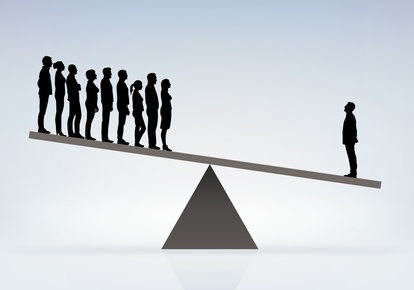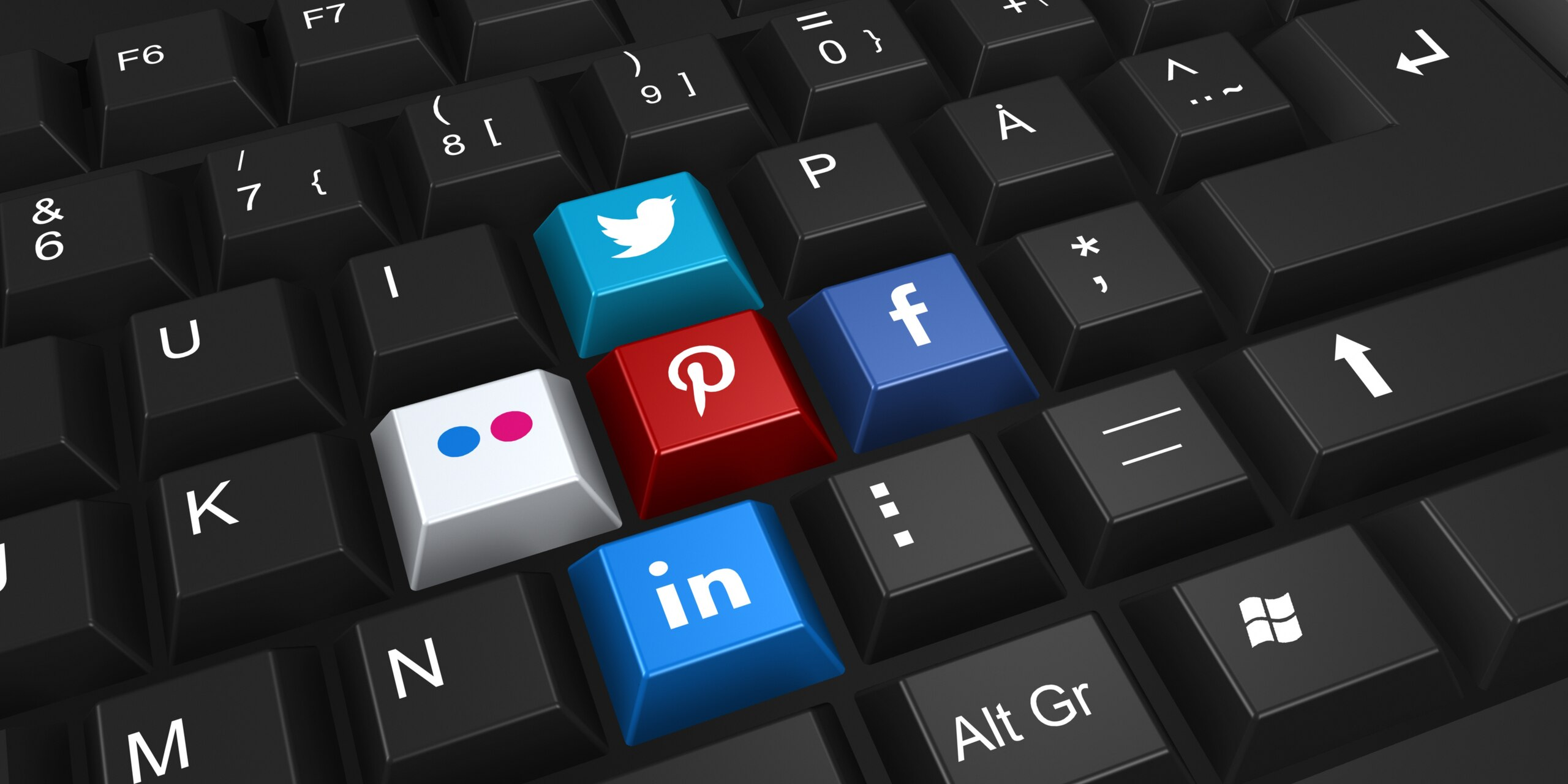A blog article from Paul Winter.
Social media addiction is becoming more and more of a problem since the global
crisis happened/ is happening and people need to become more aware of many
things surrounding that topic. This blog shall try to bring the topic closer to
you!
Picture 1basic information:
A person spends about 2 hours a day on social media on average. For teenagers,
this number can go up to 9 hours a day, depending on the person.
As of 2018, 3.1 billion people use social media. This is equal to about a third
of the global population. 2.9 billion of those are using social media “on the
go” (on their phone, while they are in a vehicle for example). 210 million out
of the 3.1 billion mobile users seem to be addicted to the internet and/or
social media.
Teenagers who spend about 5 hours on their phones are twice as likely to show
depressive symptoms. Also, females are 58% more likely to be depressed when
linked to social media. Not only that, but being young, female and single also
makes you more likely to be addicted to social media, have narcissistic
personality traits and low self-esteem.
Your age also seems to be linked to how likely you are to be addicted to social
media. In 2017 a study showed that being older makes you exponentially less
likely to be addicted. If you are between 18 and 24 your chance of being
addicted was as big as 28%, while only 2% of people that are 65 or older seemed
to be addicted at that time.
The consequences of the addiction:
The addicted are experiencing a diminished emotional state, their mood changes
for the better when using social media and for the worse when they don’t. Their
lives become occupied with social media and the victims will want to use more
and more of their time to use social media.
These people will also experience withdrawal symptoms when stopping for an
extended period as well as relapsing into the addiction when stopping for an
extended period. Interpersonal problems such as a general dissatisfaction with
life, depression and anxiety might also arise.
This is probably one huge factor as to why the third leading cause of death in
people between 10 and 24 is suicide. It is also worth noting that the number of
young people committing suicide becomes bigger and bigger every year.
Picture 2How does social media addiction work?
Social media addiction causes, as said before, withdrawal symptoms. These
symptoms are there because of the way the brain rewards the person in question.
When you do something like reaching a goal your brain releases a chemical called
dopamine. This chemical makes you “happy”.
However, social media makes you reach “goals” like “I am talking to this
person”, which can be “defined” as a goal, in a matter of seconds. This means
that you get used to having a high level of dopamine quickly. And when you get
used to it, some problems arise.
Because if your dopamine level isn’t high enough, you will feel like you aren’t
“happy”, so you end up searching for the next release. This makes you want to
spend as much time in social media as you can to reach said next release. This
in turn makes you get used to more dopamine and so the cycle continues.
Picture 3What can you do to get out?
One way to get rid of your social media addiction is doing a social media detox.
The point of a detox is stopping or limiting the use of social media for an
extended period. One example would be “I won’t use social media for 30 days.”.
After you are done with your detox you can make the limitations you placed on
yourself become looser, however, since there is the danger of relapsing it would
be best to keep enough limitations to stop said relapse.
Another way would be finding another hobby that seems more interesting to you
that social media. The plan would then be, to distract yourself with your new
hobby and engage less and less with social media.
One ought to be careful however, since the danger of falling out of love for
your hobby might bring a relapse upon you. Not only that, but you will now get
your dopamine or satisfaction from your hobby, which just means that you
exchange your old addiction for a new one – this new addiction however is
hopefully heathy and can therefore be defined as a normal hobby.
Picture 4Sources:
https://mediakix.com/blog/social-media-addiction-statistics/
https://mediakix.com/blog/how-much-time-is-spent-on-social-media-lifetime/
https://www.sciencedirect.com/science/article/abs/pii/S0160791X16301634
https://psycnet.apa.org/doiLanding?doi=10.1037%2Femo0000403
[https://psycnet.apa.org/doiLanding?doi=10.1037%252Femo0000403]
https://journals.sagepub.com/doi/10.1177/2167702617723376
https://www.sciencedirect.com/science/article/abs/pii/S0306460316301095
https://www.addictioncenter.com/drugs/social-media-addiction/
Pictures:
https://www.google.com/url?sa=i&url=https%3A%2F%2Fwww.thejournal.ie%2Fprison-cells-doubling-up-1233518-Dec2013%2F&psig=AOvVaw31P0JsBI3mZT_OqzVxFKNR&ust=1591698106360000&source=images&cd=vfe&ved=0CAIQjRxqFwoTCPCgmtT_8ekCFQAAAAAdAAAAABAD
[https://www.google.com/url?sa=i&url=https%253A%252F%252Fwww.thejournal.ie%252Fprison-cells-doubling-up-1233518-Dec2013%252F&psig=AOvVaw31P0JsBI3mZT_OqzVxFKNR&ust=1591698106360000&source=images&cd=vfe&ved=0CAIQjRxqFwoTCPCgmtT_8ekCFQAAAAAdAAAAABAD]
https://www.google.com/url?sa=i&url=https%3A%2F%2Fpt.pinterest.com%2Fpin%2F77687162296709002%2F&psig=AOvVaw2xSc7LsJ7RkX9g8tvJusYN&ust=1591698136777000&source=images&cd=vfe&ved=0CAIQjRxqFwoTCMiT2uL_8ekCFQAAAAAdAAAAABAD
[https://www.google.com/url?sa=i&url=https%253A%252F%252Fpt.pinterest.com%252Fpin%252F77687162296709002%252F&psig=AOvVaw2xSc7LsJ7RkX9g8tvJusYN&ust=1591698136777000&source=images&cd=vfe&ved=0CAIQjRxqFwoTCMiT2uL_8ekCFQAAAAAdAAAAABAD]
https://www.google.com/url?sa=i&url=https%3A%2F%2Fthedigitalrenewal.com%2Feffects-of-social-media-addiction%2F&psig=AOvVaw0OEWY0JcA7fSAA0COkZmgr&ust=1591698164536000&source=images&cd=vfe&ved=0CAIQjRxqFwoTCMCj9O__8ekCFQAAAAAdAAAAABAD
[https://www.google.com/url?sa=i&url=https%253A%252F%252Fthedigitalrenewal.com%252Feffects-of-social-media-addiction%252F&psig=AOvVaw0OEWY0JcA7fSAA0COkZmgr&ust=1591698164536000&source=images&cd=vfe&ved=0CAIQjRxqFwoTCMCj9O__8ekCFQAAAAAdAAAAABAD]
https://www.google.com/url?sa=i&url=https%3A%2F%2Fwww.addictioncenter.com%2Fdrugs%2Fsocial-media-addiction%2F&psig=AOvVaw39p2DlU8eH6ncKe0VQE_AS&ust=1591698181508000&source=images&cd=vfe&ved=0CAIQjRxqFwoTCIjB9Pf_8ekCFQAAAAAdAAAAABAD
[https://www.google.com/url?sa=i&url=https%253A%252F%252Fwww.addictioncenter.com%252Fdrugs%252Fsocial-media-addiction%252F&psig=AOvVaw39p2DlU8eH6ncKe0VQE_AS&ust=1591698181508000&source=images&cd=vfe&ved=0CAIQjRxqFwoTCIjB9Pf_8ekCFQAAAAAdAAAAABAD]






